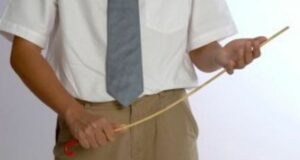Where Have All The Role Models Gone?
Where Have All The Role Models Gone?
Friday, February 18, 2022 12:02 am
Dr. Chris AnyokwuBy Chris Anyokwu
We are living through/in interesting times, such that there appears not to be any constant or absolute be it moral, or ethical; no certitudes, no orthodoxies, no fixities. And as Karl Mark famously declared, all that is solid melts into air. All space, civic, political and even socio-historical, is in a permanent state of flux. In this confounding maelstrom even the concept of relativity is jettisoned into the dustbin of superannuated bric-a-brac. Thus under the spreading anomie, you sell me and I sell you. As we say in our local parlance, do-me-I-do-you-God-no-dey-vex. Indeed, under this disorienting ethical whirligig, taboos become norms and what used to pass for norms become forbidden territory.
For those who have all their lives lived by age-old traditional beliefs rooted as they are in either Christianity, Islam or African Traditional Religion (ATR) are aghast at the present state of affairs in our social life. They are often afflicted by a wistful longing for bygone eras when east was east, and west west, when virtue was duly rewarded and vice unsparingly punished. In this connection, under the old dispensation, the child was socialised into making a distinction between what’s right and what’s wrong. Parents laid down the marker early enough, knowing you must set forth at dawn: strike the iron when it is hot. They took to heart the old Biblical injunction that says “ Foolishness is bound to the heart of a child, but the rod of correction shall drive it out”. This cautionary adage clearly chimes with the English saying: “Spare the rod and spoil the child”. The rod in the old order stood for moral sanction, for authority, for the code. Also, in the popular imaginary, the rod has always assumed something of punitive remediation, from the rod of Aaron to the Psalmist rod (Psalm 23), and, of course, the “rod of correction” referred to in the Book of Proverbs.
The rod-motif all through Biblical, mythic and historical times has been necessitated by the belief that the homo sapiens as a species is by nature congenitally evil and thus counter-cultural and anti-social (Gen. 6: 5). This verse of Scripture says: “And God saw that the wickedness of man was great in the earth, and that every imagination of the thoughts of his heart was only evil continually”. Let’s ponder that for a moment. Scary stuff, right? Another verse of Scripture tells us that the heart of man (and woman!) is deceitful and desperately wicked. Who can know it? An abyss of unprintable evil, the human heart. Philosophers, sociologists and anthropologists, inter alia down the ages have tried without reaching a consensus to know the indubitable and definitive truth about the nature of evil in man. Is the human personality really born evil or is s/he born good but corrupted by the social environment? Put differently, is man naturally bad (a rising devil)? Or is s/he congenitally upright but sullied and stained by society (a fallen angel)? This Hume-Hobbes controversy has for long riven the humanistic citadel right down the middle, rigidifying the academe into conceptual insularities. Whilst setting aside for now this somewhat academicist hair-splitting over the roots of evil, of deviancy, it is meet for us to return to the foundational authority of Scripture on the matter. It is thus assumed that, prior to the Fall at Eden, man (used, again in sui generis manner) was holy. He was one with God. But after he fell out of favour with Yahweh on account of disobedience (i.e. the so-called “Original Sin”), he became a cosmic hobo, an existential flaneur and life’s persona non grata. Significantly, Adam’s progeny, you and I, carry in our collective DNA this gravitational millstone of sin/evil/deviancy. It is known as the Adamic nature, from which Christ, the Author of Grace, has come to redeem humanity.
The institution of human law – constitutional provisions, injunctions, rules and regulations, statues, etc. – is premised upon the notion that man’s inborn predisposition towards evil can be reined in at the very least by the instrumentality of law. The whole realm of socialisation is thus subsumed under this philosophy of legalism. Being an important component of what Marx calls “Superstructure”, the legal system insinuates itself into the moral code around which conventional conduct revolves. Whether at home, at school, in the church, in the media and society at large, all the agents of socialisation must draw and derive their authority from the law. The law, however, on its own cannot coerce and corral people who stray from propriety back in line. Human beings do. And that’s where role models come in. Under normal circumstances, parents are supposed to be role models. Teachers at school are equally expected to be mirror-images of right conduct. In religious circles, pastors (I prefer that to all the other loud and meretricious designations!) and Imams are also looked upon as paragons of holy living. In society, leaders at all levels, rulers of communities, celebrities and other iconic personages are normally seen as exemplars of moral excellence. Yes, we call them mentors and role models. Same goes for those who have excelled in their chosen fields of endeavour – pilots, engineers, doctors, architects, lawyers, accountants, teachers. Young children, coming through, model their lives on these “success-stories”: You are their tomorrow as their role models. Thus, in the home (i.e. formerly), Father or Dad, as they prefer to be called these days, was god. His word was law. You couldn’t sit on his special sofa, his wicker-chair. Nor could you use his late-hour mug he used for quaffing the fiery brew, palm-wine. Woe betides you, should you touch his ukókò – native pipe for tobacco-smoking. At school, the Teacher, ramrod-straight and Spartan, was synonymous with the cane (i.e., “the rod of correction”). Corporal punishment was sanctioned by law. Even outside the school premises, the Teacher (primary and secondary school) still wielded awesome influence and power.
The Teacher would saunter from house to house, setting right wayward children with the ubiquitous cane. How about the religious leaders? They were simply seen as “Men of God”, period. Whether you are talking about the Roman Catholic Fathers and nuns or the prelates, vicars and pastors of the more orthodox sects of the Christian faith, these men and women of the cloth were demonstrably unimpeachable, exemplary. They were not wolves in sheep’s clothing or hirelings who, like the Biblical thief, have come “to steal, to kill and to destroy”. They were prayerful, sober, trouble-shooting, abstemious and ascetic. Not for them the lust of the flesh, the lust of the eyes and the pride of life, characteristics of the children of disobedience, which, sadly, today define and distinguish so-called “Men of God”. If you were ill, the mere sight of the mitred priest or cassocked vicar was enough to bring you healing. To be touched by Pastor was the acme of absolution, indeed. Most of us listen to Onyeka Onwenu’s song entitled “Iyi Ogogo” but do not understand the informing agrarian associations and references behind it. Lost on most of us is the allusive ecosystem of atavistic renewal encoded in the lyrics. Simply put, she is drawing upon the bucolic ethos prevalent in rural peacedom, that is, the traditional society in which villagers would wake up at 5AM prompt and hurry off to the Bishop’s house for early-morning Mass. These village folk would also go to the village stream to fetch water for the Bishop’s household and, at times, do farm work for him, among other duties. The Bishop was God’s viceroy and his word carried the power of life and death.
Whilst the politicians have never pretended to assume the role of the morally-upright, always carrying on like some gods, everyday people, men and women were considered role models to young people. An elderly man/woman is father/mother to every child, regardless. They taught the virtues and values of honesty, moral propriety, hard work, accountability, tolerance, humanity, togetherness and compassion. But now, selfishness, egocentricity, deceitfulness, arrogance, pride, boastfulness, crookedness, mischief-making, blackmailing, stealing and cheating, and all whatnot are the norm. With the advent of the internet, social media, the globalisation of sexual perversion, children and young adults are simply lost in the jungle and the wilderness of life, looking desperately for a moral compass, some guidance, a role model. So where are the role models? Can we count on our On-Air-Personalities (OAPs) film-stars, Pastors, musicians, sport people, politicians, teachers, and even parents? What kind of future, you ask, are these opinion-leaders, norm entrepreneurs, celebrities, public figures leading our progeny? Is it loose living, “any-thing-goes” kind of life? What becomes of our ancient landmarks, the “old pumpkins” a la Okot p’Bitek; our way of life? Where, to be certain, are our role models? Where have they ALL suddenly gone? Are they dead? Or are they still alive? Where are they?
Chris Anyokwu, PhD.
Associate Professor of English
University of Lagos.







 60 mins ago
60 mins ago  2 hours ago
2 hours ago  3 hours ago
3 hours ago  15 hours ago
15 hours ago  17 hours ago
17 hours ago  19 hours ago
19 hours ago  19 hours ago
19 hours ago  20 hours ago
20 hours ago
Join The Conversation